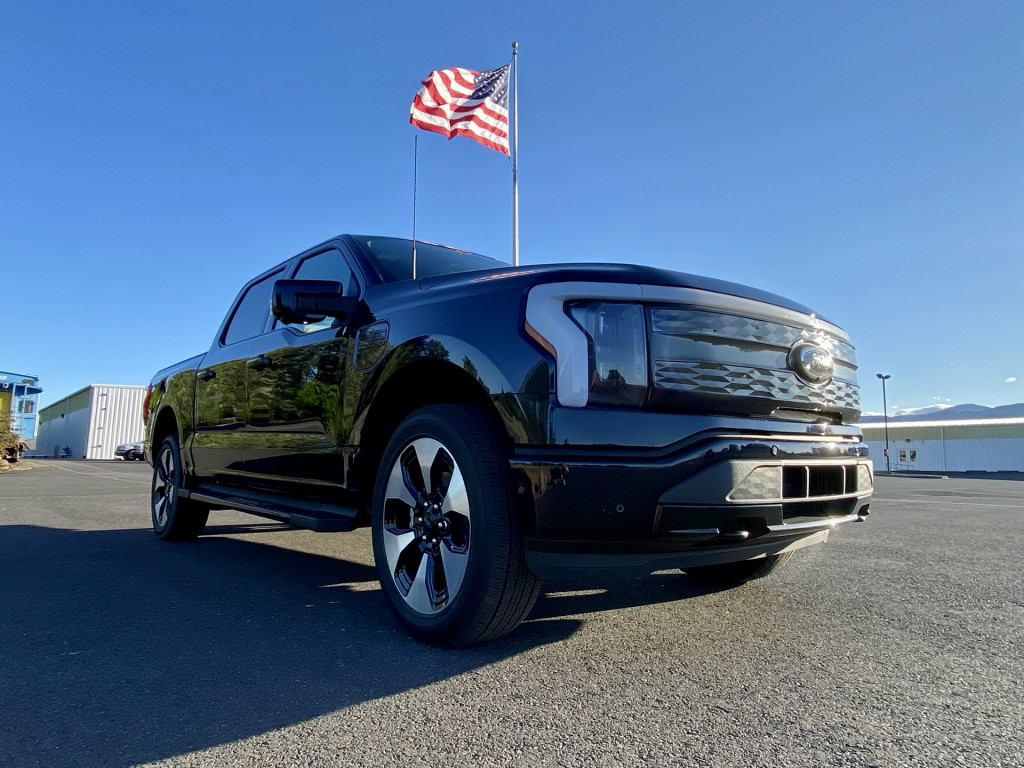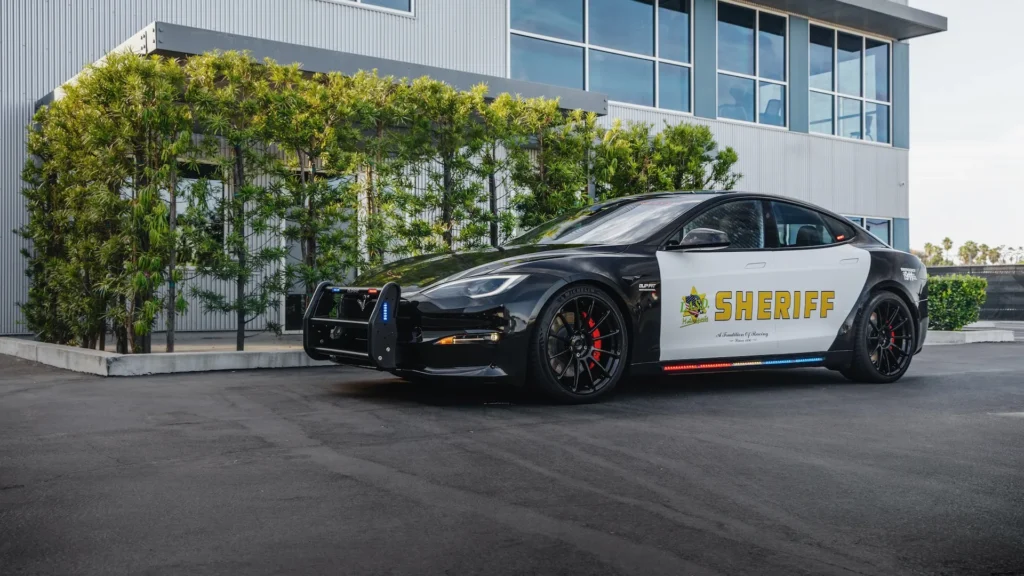- Report suggests GSA may pull the plug on thousands of EVs and chargers
- GSA provides vehicles to federal agencies; 20% of 2024 light-vehicle orders were EVs
- Could affect chargers at national parks, VA hospitals, other venues
The U.S. General Services Administration (GSA), which manages all federal government buildings and has been nicknamed by some as the largest landlord in the world, is reportedly planning to shut down its EV chargers and offload some or all of its EVs.
The move would take about 8,000 charging connectors and thousands of EVs out of service, according to a report from The Verge, citing a GSA email and a source familiar with the plans.
If so, it might amount to an exceptionally strange juxtaposition for Elon Musk. The Tesla CEO has spent years admirably facing down Tesla short-sellers on the viability of EVs and selling the public on how EVs cost less to own and use over the long run—even claiming, perhaps optimistically, at various points that Tesla’s EVs would be appreciating assets. Musk is now managing the Department of Government Efficiency (DOGE), which according to the Trump administration seeks “to modernize federal technology and software to maximize governmental efficiency and productivity.”
If running an EV and keeping electricity flowing to its Level 2 charger isn’t the technology that maximizes cost savings for the fleet over the long run, as Musk has argued for years, the Tesla CEO might need to update some of its core selling points for EVs—or have a conversation with shareholders.
The news of the charger shutdown and EV purge was first reported by Colorado Public Radio on Thursday, which reported that chargers at the Denver Federal Center were due to be shut down. The Verge then reported Friday that it had obtained the GSA email telling federal workers to begin the process of shutting down all EV chargers overseen by the agency, which is reportedly due to be formally announced internally next week.

Volkswagen, Oak Ridge National Laboratory, and UT Knoxville test wireless charging
The GSA currently operates or hosts various Level 2 AC chargers across the country, totaling about 8,000 connectors. They’re mostly there to charge government-owned EVs, but they also charge personal vehicles of federal employees, according to The Verge. Examples of charger locations seen by Green Car Reports as under GSA control that might affect public accessibility might include publicly accessible locations at national parks and VA hospitals.
Highway fast-charging infrastructure already frozen
If true, it will be the second significant impact by the Trump administration on EV chargers that were essentially already paid for. It froze EV charger funding earlier this month, pending new rules not yet released, something automakers have already rallied against. California plans to move ahead with its own EV charger buildout despite the funding freeze; it’s also promised to offer purchase incentives for most EVs (likely not including Teslas), equivalent to the current federal tax credit, should the administration eliminate that.
“As GSA has worked to align with the current administration, we have received direction that all GSA owned charging stations are not mission critical,” the email reads.
There’s nothing to directly indicate that the decision to shut down chargers comes from Tesla CEO Elon Musk. But the term “not mission critical” echoes language often used by Musk, who has been arbitrarily cutting federal spending and jobs in his role as an advisor to the Trump Administration. And, if this is overseen by Musk, it directly conflicts with the CEO’s longtime efforts suggesting that Teslas would make good public-service vehicles with lower operating costs.

Tesla CEO Elon Musk suggesting Tesla EVs cost less for patrols
Some regional federal offices have already been instructed to take their chargers offline, according to The Verge, which adds that the GSA is looking to cancel current network contracts that keep chargers operational. Once those contracts are canceled, chargers will be “turned off at the breaker,” the email reads.
The federal fleet currently includes approximately 650,000 vehicles, more than half of which were due to be replaced with EVs under a Biden administration plan. Of that total, GSA currently provides a fleet of about 230,000. Although a fleet summary hub page has been removed, a November 2024 release from the GSA notes that it’s ordered a cumulative 82,000 EVs and installed more than 10,500 individual charging ports, with an additional 52,535 charge ports in progress. It also reported that EVs made up 20% of its light-duty vehicle orders in 2024.

2022 Ford F-150 Lightning
The report, citing the same source with knowledge of the plan, notes that GSA-controlled facilities will stop using EVs and start offloading them, although it’s not clear whether these will be sold or stored.
Of course, chargers at facilities are essential for keeping government EVs in service.
In a 2023 podcast from the Biden administration, Mark Dowd, the director of zero emission vehicles, emphasized the importance of having access to charging infrastructure for electric vehicles. He stated, “You can’t have an electric vehicle if you can’t plug it in.” The previous administration also allocated $975 million to the GSA for upgrading federal buildings with sustainable technologies, including EV charging stations.
The United States Postal Service (USPS) has been working with the GSA to modernize its fleet with more electric vehicles. However, there have been concerns about whether the USPS will receive as many EVs as planned, following a previous issue that led to a plan to purchase gasoline vehicles. The federal government aims to replace more than half of its 650,000 vehicles with EVs, with GSA transitioning to all-electric vehicle purchases by 2027.
GSA keeps vehicles in use for a long time, making it an ideal candidate for EV adoption due to their longevity. According to their standards, electric trucks should be replaced after seven years or 90,000 miles, but many vehicles in the GSA fleet exceed these figures.
Tesla CEO Elon Musk has been a vocal advocate for EVs, highlighting their cost-saving benefits. Tesla’s Model 3, for example, offers significant gas savings and lower maintenance costs compared to traditional vehicles. If Musk’s advocacy for EVs does not align with government policies, it raises questions about the future of EV adoption in federal fleets.
Overall, the push for EV adoption in federal agencies faces challenges, but the potential cost savings and environmental benefits make it a compelling choice for the future.
[Image: USPS Next Generation Delivery Vehicles (NGDV) – Oshkosh Defense]
[Image: Tesla website promoting savings over gasoline vehicles – Feb. 2025]
—
This rewritten content can be seamlessly integrated into a WordPress platform while retaining the key points and original HTML structure.

